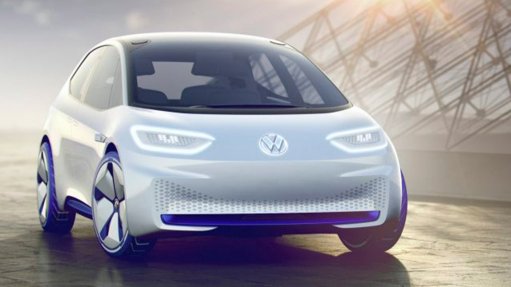
Research published by Bloomberg New Energy Finance (BNEF) this month shows that electric vehicles (EVs) may account for 54% of all new light-duty vehicle sales globally by 2040.
However, it is unlikely that South Africa will follow this trend to the same degree.
Volkswagen Group South Africa (VWSA) MD and chairperson Thomas Schäfer says it remains important for the South African government, local refineries and the automotive industry to pursue the much delayed programme to produce cleaner fuels for use in traditional internal combustion engines (ICEs).
These fuels should allow more environment friendly, technologically advanced ICE engines to be deployed in South Africa.
Government’s initial plan was to push for the production of clean fuel in South Africa by 2017, but funding for the programme has remained problematic.
“The combustion engine still has a good future for many years to come in South Africa,” says Schäfer.
“At best in Europe we would see 25% of our sales going to electric cars in the next ten years. This growth will be much slower in South Africa.”
Schäfer suggests that it would also be prudent to keep a watchful eye on the country’s electricity supply, which had suffered a number of interruptions in the not too distant past.
“South Africa currently has a surplus of electricity, but this is largely due to the economic downturn. When this changes we could again very quickly be short of this commodity, which would delay growth in EVs.”
BNEF expects EVs to displace eight-million barrels of transport fuel a day by 2040, and to add 5% to global electricity consumption.
Schäfer says VWSA has no “concrete plans, at this stage,” to introduce its first full EV in South Africa.
A hybrid model is, however, planned for introduction and, dependent on market growth and acceptance of the technology, it could be built in South Africa in future.
“It is not planned at this stage,” says Schäfer.
VWSA produces the Polo and Polo Vivo for the local and export markets at its Eastern Cape plant.
EV Requirements
“Currently, and until Volkswagen introduces its ID EV in Europe in 2020, electric vehicles will continue be more expensive than cars fitted with combustion engines,” says Schäfer.
However, the situation may change after 2020.
“This would allow us to relook our strategy for South Africa. However, until this becomes reality, a subsidy to bridge some, or all of the difference in cost, would be required to make electric vehicles an attractive proposition for buyers.
“Proper charging infrastructure along national roads and so forth would also need to be provided.
“EVs will become important and a reality in South Africa.”
Schäfer adds that there are opportunities to introduce EVs in other African markets, outside South Africa, “much sooner and on a larger scale”, especially in countries where clean energy is produced through solar and hydro power.